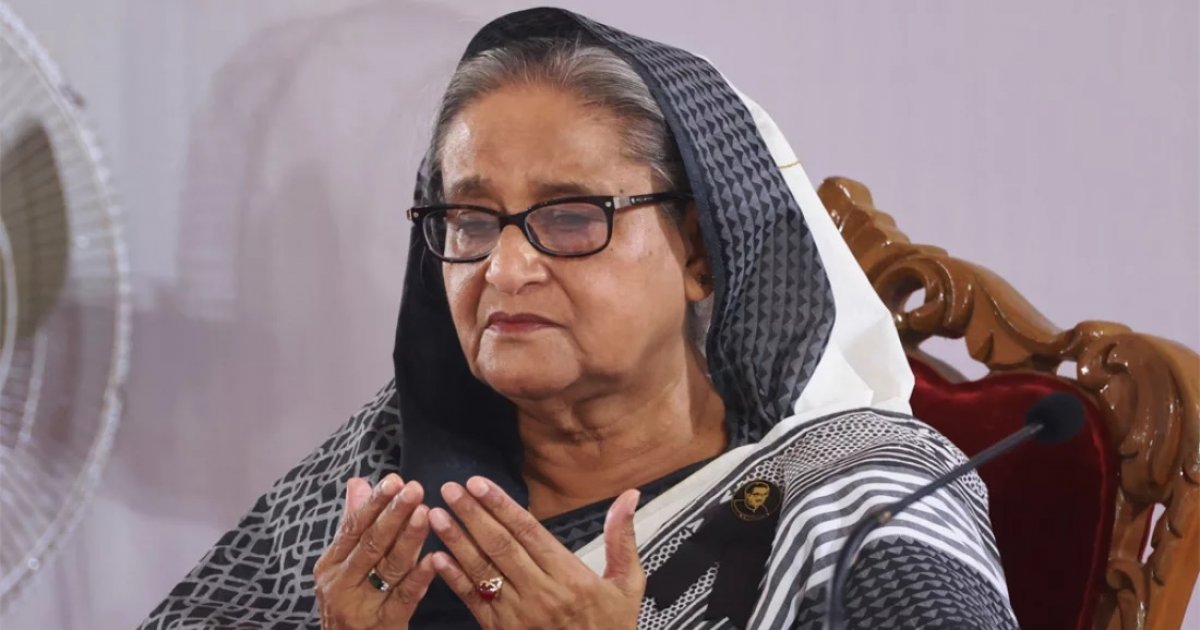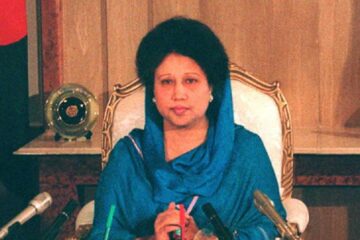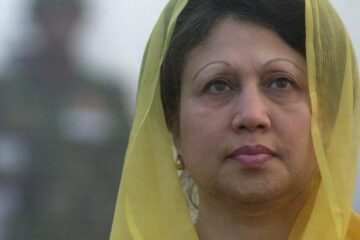International Crimes Tribunal-1 on Thursday set November 17 as the verdict date in the case against deposed prime minister Sheikh Hasina and two co-accused.
The three-member tribunal – led by Justice Md Golam Mortuza Mozumder, with Justice Md Shafiul Alam Mahmood and Judge Md Mohitul Haque Enam Chowdhury – fixed the date during a brief hearing under tight security in Dhaka.
Armed police, Border Guard Bangladesh, and army patrols ringed the courthouse as the date was set, reflecting heightened tensions surrounding the high-profile trial.
The tribunal’s Chairman Golam Mortuza said the verdict would address charges of crimes against humanity stemming from last year’s political unrest.
Co-accused and charges
Alongside Sheikh Hasina, two senior officials from her former administration are facing trial for crimes against humanity.
Asaduzzaman Khan Kamal, ex-home minister and close aide to Hasina, is being tried in absentia.
He faces five counts, including authorizing lethal force during the protest crackdown and inciting attacks on unarmed demonstrators.
Former inspector general of police Chowdhury Abdullah Al-Mamun initially charged under the same counts, turned state witness after admitting his role.
His testimony detailed how orders from Hasina and Kamal were executed. His legal team is seeking clemency based on cooperation.
All three are jointly accused of:
- Inciting violence through Hasina’s July 14 press briefing, allegedly triggering attacks on student protesters.
- Ordering deadly force, including use of helicopters, drones, and live ammunition.
- Targeted killing of student Abu Sayeed in Rangpur, allegedly following inflammatory remarks.
- Mass shootings of six unarmed protesters in Dhaka’s Chankharpul area on August 5.
- Burning of protesters, including the alleged live immolation of a victim in Ashulia.
Prosecutors argue these acts formed part of a systematic attack on civilians, constituting crimes against humanity under the International Crimes (Tribunals) Act.
Hasina is accused of exercising “superior command responsibility” and leading a “joint criminal enterprise” to suppress dissent.
Case background
The charges relate to the “July Uprising” of 2024, a massive student-led protest that culminated in the fall of Hasina’s government after 15 years in power.
The Awami League government was toppled on August 5, 2024 amid accusations of a bloody crackdown that left hundreds dead.
Hasina fled Bangladesh that day and took refuge in India, while an interim administration assumed control.
In the aftermath, the new authorities reconstituted the International Crimes Tribunal to investigate atrocities during the turmoil.
The case against Hasina was the first filed before the revamped tribunal, with an arrest warrant issued in October 2024 when initial proceedings began.
Over the following months, investigators gathered evidence.
On June 1, prosecutors formally lodged charges against Hasina and her alleged accomplices.
The tribunal indicted the accused on July 10, allowing the trial to commence.
Closing arguments ran from October 12 to 23, after which the judges announced they would set a verdict date on November 13.
That date has now been confirmed as November 17, capping a fast-tracked process of roughly 28 court working days and testimony from 54 witnesses.
Reactions
The high-profile trial, broadcast live on state television, concluded on October 23 with closing arguments.
Attorney General Abu Mohammad Asaduzzaman urged the tribunal to impose the maximum penalty, citing the deaths of 1,400 people during the 2024 unrest.
Chief Prosecutor Tajul Islam echoed the call for an “exemplary verdict.”
With Hasina and Kamal tried in absentia, state-appointed counsel Md Amir Hossain argued for acquittal, calling the case unproven and warning against setting a “dangerous precedent.”
Advocate Zayed Bin Amjad, representing approver Mamun, sought clemency for his client, citing cooperation and remorse.
While any ruling can be appealed within 30 days, legal experts note that fugitives like Hasina and Kamal must surrender to be eligible for review.
From exile, Sheikh Hasina rejected the charges and vowed not to return without guarantees of free elections.
Meanwhile, two British lawyers appealed to the UN, citing due-process concerns.
The verdict could sentence Hasina and her aides to death if convicted.



